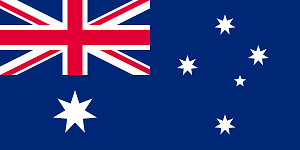
New Jersey Gambling License Renewal Deadline Approaching [...]

TRY THESE POPULAR GAMES:
- July 25, 2018 By Riley Wilson -

Australia makes another effort in an attempt to combat illegal gambling.
With the decline of illegal forms of gambling in the land Down Under, it seems to be a question of days when horse owners and trainers are to be inspected and even have their electronic devices (those that can be used for gambling) seized.
After the illegal online wagering has supposedly hit the roof, the government has decided to assume a more relentless position and take drastic measures to prevent further expansion on illegal betting. The first step is applying the new set of rules introduced by Racing Australia, the regulatory body that handles the racing industry.
Legal online alternatives are available, however, black markets continue to flourish and they seem to be a preferred option for a lot of Aussie players, especially since the unlicensed sites often offer attractive promotions and generous bonuses. According to some recently conducted researches, the amount annually spent on illegal wagering is expected to reach A$900 million by 2020.
The new regulations are expected to put an end to that, and, as of August 2018, all the race-horse owners and trainers may be requested to turn in their electronic devices for forensic examination; any evidence that would indicate a link with non-licensed sites can have serious legal repercussions.
Something similar has already happened in Victoria, only this time the action will not be partially applied and entire Australia will be covered by the new set of regulations. So far, the reaction of local regulators has been a positive one and the measures are widely accepted as an overdue remedy against the black market.
In light of the tax regulations expected to take place in 2019, the shift from illegal to legal market can be equally beneficial to both the state and the operators. With the collapse of illegal wagering schemes, the traffic volume of legal betting platforms will probably be drastically increased, which will result in a generous contribution to the state annual budget. At the moment, Victoria is looking at the 8% Point of Consumption Tax rate, while New South Wales will be expected to pay 15%. Queensland is somewhere in between, with 10%.